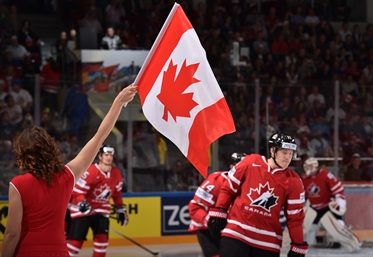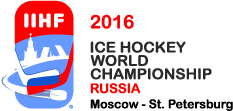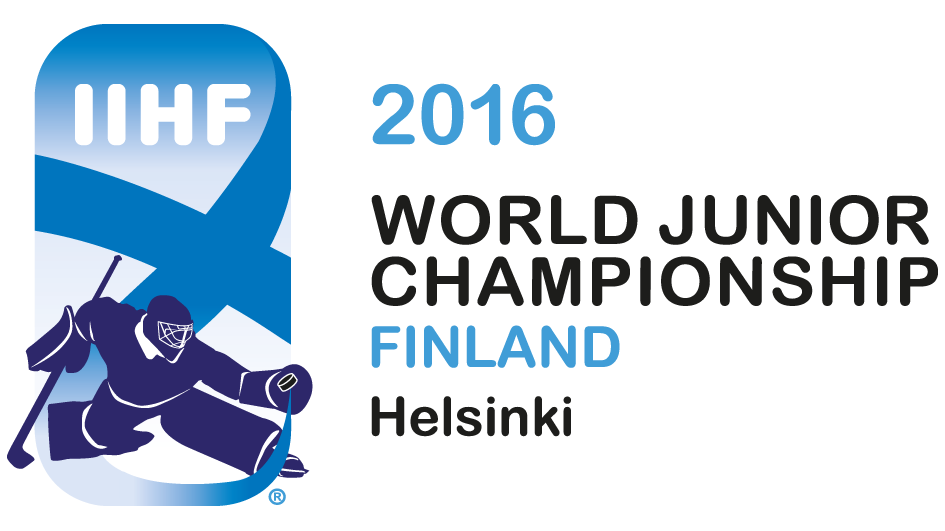Hockey still defines Canada
Hockey still defines Canada
Best days ahead for motherland of the sport

 MOSCOW, RUSSIA - MAY 6: Team Canada takes to the ice to take on Team USA during preliminary round action at the 2016 IIHF Ice Hockey Championship. (Photo by Minas Panagiotakis/HHOF-IIHF Images)
MOSCOW, RUSSIA - MAY 6: Team Canada takes to the ice to take on Team USA during preliminary round action at the 2016 IIHF Ice Hockey Championship. (Photo by Minas Panagiotakis/HHOF-IIHF Images)
I approach this issue as a Canadian journalist who has contributed to Canada’s national newspaper myself and who, in general, has the greatest respect for the work of Mr. Martin, who served as the paper’s Moscow bureau chief from 1985 to 1988.
His 1993 biography of Mario Lemieux is one of the best unauthorized hockey biographies written. I paid a pretty good price for his excellent out-of-print 1990 book The Red Machine: The Soviet Quest to Dominate Canada’s Game: I took it out of the Vancouver Public Library for reference at my first Olympics in Salt Lake City in 2002, and someone made off with it from the E Center, obliging me to pay a $40 fine upon returning home. (Ahem.)
With all that said, I have to take issue with Mr. Martin’s contention that “our national sport is clearly past its prime, clearly on the decline” and that “hockey’s heyday was the Cold War era, 1950 to 1990.”
It is tempting to lapse into nostalgia. Personally, I can watch the three-game 1987 Canada Cup final between the host nation and the Soviet Union over and over again, building up to Lemieux’s winner from Gretzky at 18:34 of the third period in Game Three.
But that doesn’t change the fact that on average, Canadian players – like their international counterparts – are faster, more skilled, and better-conditioned than their 1980s predecessors could have dreamed of.
When Canadian hockey has encountered challenges in the past, from the 1972 Summit Series battle of styles with the Soviet Union to the concerns about skills development in the late 1990s, it has always responded and adapted with vigor, and the sport’s strength and popularity has grown.
With Canada’s IIHF Ice Hockey World Championship team currently sporting an unbeaten record and the tournament’s best goal difference (+21) prior to facing Slovakia, it’s hard to argue that the game doesn’t enjoy the same primacy as it’s always enjoyed from Victoria, British Columbia to St. John’s, Newfoundland. Especially when you factor in Canada’s status as the defending world champions, not to mention the reigning Olympic champions in both men’s and women’s hockey.
“I’ve said this since Day One: we’re excited to be here, put this jersey on, and play for our country,” said Canadian captain Corey Perry in St. Petersburg.
That’s the same refrain you would have heard from captains like Bobby Clarke at the 1976 Canada Cup, Marcel Dionne at the 1986 IIHF World Championship, Wayne Gretzky at the 1996 World Cup of Hockey, or Joe Sakic at the 2006 Olympics. Whether they won or lost, they knew where their country’s priorities lay.
“The only reason you come here is to win and prove our country is the best,” said Canada’s Ryan O’Reilly. “But at the same time, it’s not easy.”
Unlike the Cold War era, Canadian fans no longer automatically assume that their team will win every tournament it enters. But that’s healthy. Stiffer competition is good. It doesn’t mean that passion for the sport has declined.
Today, it’s equally true to say that “there is a very good chance Canada will win this tournament” and that “there is a very good chance Canada will not win this tournament.” It just shows that the rest of the hockey world has absorbed a lot of lessons from the motherland of hockey.
Martin points to the “steep rise of basketball and soccer.” With all due respect to the accomplishments of NBA stars like Steve Nash and Andrew Wiggins or the Canadian women’s soccer team, Canada will never be identified first and foremost with either basketball or soccer. How could it versus the likes of the United States or Germany?
Hockey remains quintessentially Canadian. The appetite for hockey in Canada is unstinting. Just look at the TV numbers.
This year, for the first time ever, TSN is televising all 64 games of the IIHF Ice Hockey World Championship for Canadian viewers. Last year’s gold medal game, where Sidney Crosby’s Canadians romped 6-1 over Alexander Ovechkin’s Russians, reaped a record-setting 1.5 million viewers in Canada. In total, more than 10 million people tuned in to check out the 2015 tournament in the Czech Republic.
Martin also argues that hockey is in decline in Canada due to “no Canadian teams in the playoffs, no Stanley Cup winner since the last century and problems endemic to the ice game, such as a lack of scoring and frightening head injuries.” The first two issues fall into the category of “This too shall pass.” The second two issues can be – and to some degree are already being – addressed by stricter rule enforcement. The IIHF has long held that there is no such thing as a clean hit to the head, and professional hockey leagues have likewise tightened their stance. It’s all about making the game better over time.
In addition, Martin cites the impact of immigration on passion for hockey: “With the new makeup of the population, the interest in and the passion for hockey isn’t the same.” However, in all seven Canadian NHL cities, the NHL teams retain first place in the hearts of sports fans. (And yes, that applies in Toronto too, where a revitalized Leafs’ Stanley Cup run would eclipse in popularity the recent playoff exploits of the NBA’s Raptors or MLB’s Blue Jays.) And over time, immigration will simply expand the diversity within hockey, as has already been seen with the likes of superstar Montreal Canadiens defenceman P.K. Subban.
The most undying testimonial to hockey’s staunch position in Canadians is what happened in the streets of Vancouver on February 28, 2010 when Sidney Crosby scored the golden overtime goal to lift Canada past the United States in the Olympic final – a game watched by 16.6 million Canadians. That was a party reminiscent of what would have happened in Brazil had the host nation won the 2014 FIFA World Cup. It could not have been triggered by any other sports event in Canada.
It’s now 2016, and hockey’s best days in Canada are still to come.
Back to Overview














































































